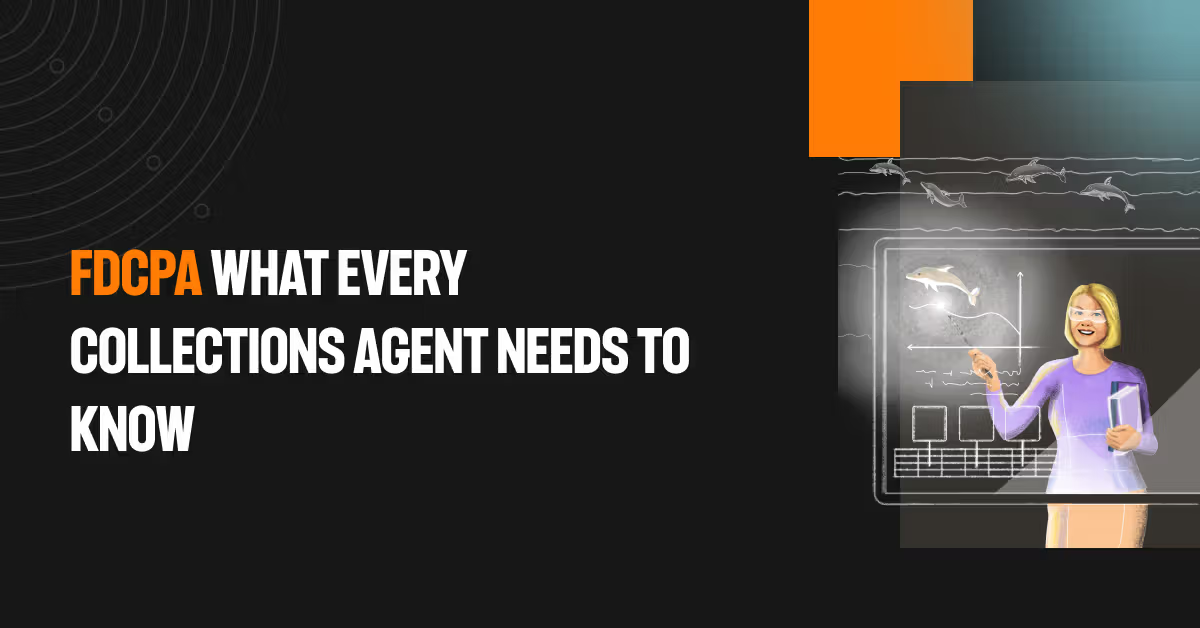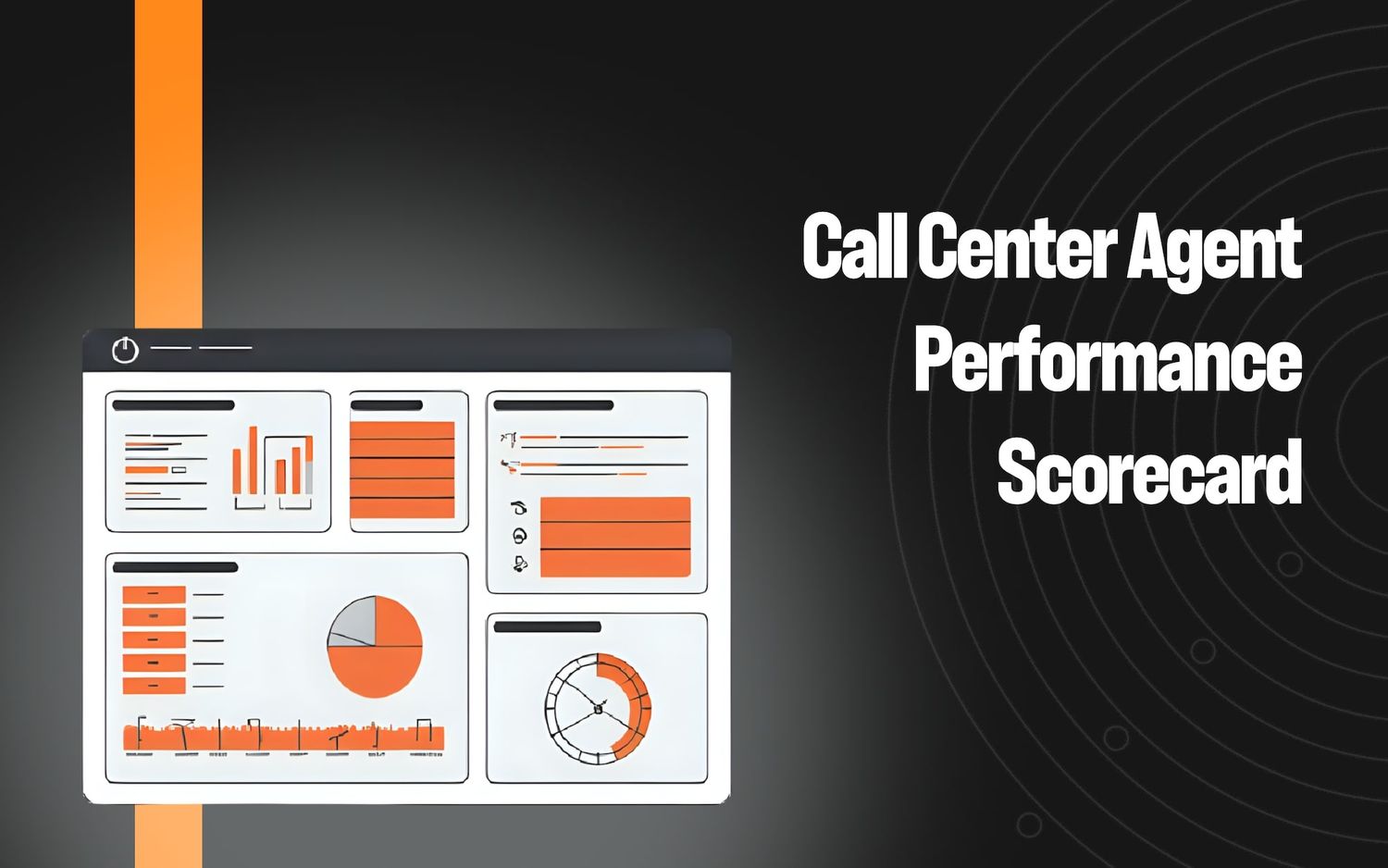FDCPA: What Every Collections Agent Needs to Know

The FDCPA: Your Guide to Ethical and Compliant Collections
The Fair Debt Collection Practices Act (FDCPA) is the cornerstone of ethical and legal debt collection practices in the United States. As a collections agent, understanding and adhering to the FDCPA is not just crucial, It's your responsibility. Here's why:
- Protecting Consumers: The FDCPA safeguards borrowers from harassment, intimidation, and unfair collection tactics.
- Maintaining Trust: By following the FDCPA, you promote responsible debt collection practices that foster trust and cooperation between the agency and the borrower.
- Avoiding Legal Trouble: Violations of the FDCPA can have serious consequences. These include hefty fines from the Federal Trade Commission (FTC), lawsuits from borrowers, and even damage to the agency's reputation.
Not knowing the FDCPA isn't an excuse. Understanding these regulations is essential for collections agents to do their jobs effectively and ethically.
Key Provisions Every Collections Agent Needs to Know
As a collections agent, understanding and adhering to these regulations is critical for ethical, legal, and successful debt recovery. Here's a breakdown of the FDCPA's key provisions:
1. Debt Verification:
Upon initial contact, you must provide the debtor with a written verification of the debt. This verification notice should include the creditor's name, the amount of the debt, and a breakdown of charges. It also needs to inform the debtor of their right to dispute the debt within 30 days.
2. Communication Restrictions:
You can't harass debtors with excessive calls. Generally, the FDCPA allows for no more than one initial contact attempt and subsequent attempts spaced reasonably apart over a seven-day period. There are also limitations on when you can contact debtors. You can't call them before 8:00 AM or after 9:00 PM in their local time zone. Unless the debtor grants permission, you can't contact them at their workplace.
3. Prohibited Practices:
- Harassment and Abuse: This includes threats of violence, yelling, using obscene language, or publicly shaming the debtor.
You cannot lie about the amount of the debt, the legal consequences of non-payment, or your affiliation with any government agency. It's illegal to pretend to be an attorney, law enforcement officer, or any other official figure. Tactics designed to scare or mislead debtors, such as contacting them repeatedly in a short period or threatening to arrest them for non-payment of debt (which is not a possibility in most cases), are prohibited. Threats of violence, yelling, obscene language, and publicly shaming the debtor are all prohibited as well.
4. Third-Party Contacts:
You can only contact friends, family, and employers of the debtor to locate them or obtain contact information, but not to discuss the debt itself without their permission. You cannot disclose any details of the debt to these third parties unless they are a spouse or co-signer on the debt.
5. Validating Debts and Disputes:
If a debtor disputes the validity of the debt within 30 days of receiving the verification notice, you must cease all collection efforts until you obtain written verification of the debt from the creditor. You have five days to acknowledge a dispute and 30 days to provide verification or cease communication.
6. Cease and Desist Requests:
If a debtor submits a written request to stop contacting them, you must comply within five business days. You can only resume contact if the debtor gives written permission or if you are taking legal action.
Understanding these key provisions of the FDCPA is essential for navigating the debt collection landscape. Always remember, responsible communication and respect for the borrower's rights are crucial for building trust and achieving successful debt recovery.
Best Practices for FDCPA Compliance: A Collections Agent's Guide
The Fair Debt Collection Practices Act (FDCPA) establishes clear guidelines for ethical and responsible debt collection. As a collections agent, adhering to these regulations is not just mandatory, it's essential for fostering trust with debtors and achieving successful outcomes. Here are some best practices to ensure you stay compliant with the FDCPA:
1. Maintain Accurate Records:
Keep meticulous records of all communication with debtors, including dates, times, methods used (phone, email, etc.), and the content of your conversations. Document any promises made by the debtor or agreements reached. This detailed record-keeping becomes invaluable in case of disputes or potential legal action.
2. Use Clear and Respectful Language:
Communicate professionally and avoid using aggressive or threatening language. Focus on explaining the debt situation clearly and offering solutions to resolve it. Maintain a courteous tone even when dealing with difficult or frustrated debtors.
3. Know Your Limits:
Be thoroughly familiar with the FDCPA's provisions and restrictions. When unsure about a communication approach or the legal implications, don't hesitate to seek clarification from a supervisor or legal counsel.
4. Handle Disputes Transparently:
If a debtor disputes the debt's validity, acknowledge the dispute promptly and follow the FDCPA's process for validation. Cease all collection efforts until you obtain written verification of the debt from the creditor.
5. Offer Payment Options and Explain Consequences:
Discuss various payment options that might be feasible for the debtor, considering their financial situation. Explain the potential consequences of non-payment in a clear and factual manner, avoiding any legal inaccuracies.
6. Document Cease and Desist Requests:
If a debtor submits a written request to stop contacting them, immediately cease all communication attempts (excluding legal action notifications). Maintain a record of the written request for future reference and as evidence of compliance.
Upholding the FDCPA fosters trust, promotes ethical debt collection practices, and ultimately benefits both the agency and the borrower. By incorporating these best practices into your daily routine, you can ensure compliance and contribute to a more positive debt recovery experience for all parties involved.
Keep reading
View all





